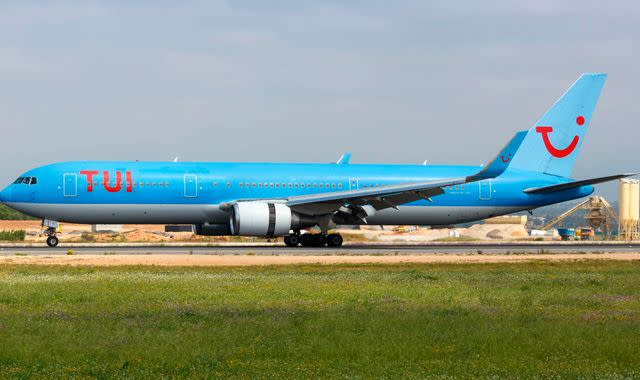TUI to take flight from London listing in blow to City

Shareholders in Europe's largest travel operator have overwhelmingly backed the company's plans to cancel its listing on the London Stock Exchange.
TUI had announced in December that it planned to put the question to investors at its AGM this month, raising further eyebrows over the City of London's post-Brexit future.
It argued that removing its shares on the FTSE 100 would cut costs and help it meet European Union airline ownership and control requirements.
But its central position was that a single German listing would better reflect its ownership and trading patterns, as most of its investors are domiciled in its home market.
Money latest: Inflation to rise on Wednesday, experts say - here's what it could mean for interest rates
The company added that it did not believe cancelling its London listing would have an adverse effect on its image among UK consumers.
It was created from the combination of Germany's TUI with Britain's First Choice Holidays in 2007.
At least 75% of investors needed to support the motion for it to pass.
More than 98% supported the board.
Hannover-based TUI had, hours earlier, revealed better-than-expected quarterly results on the back of robust travel demand.
An operating profit of €6m (£5.1m) was reported for the low season of October-December.
TUI had delivered a loss of €153m (£130m) in the same period a year previously.
While TUI distanced itself from speculation of a snub to the UK, its delisting adds to the names of a growing number of firms seeking their fortunes away from London.
Flutter Entertainment, the owner of Paddy Power and Betfair, is expected to abandon the City altogether in the medium term after it sought a US listing.
Others to have left to make their primary listing abroad include CRH, the Irish-based and US-focused building materials company.
Britain's biggest chip company, ARM, floated in New York last year.
The government has responded by initiating plans to make the UK more attractive, but it has been accused of dragging its heels on the issue.
Paul Charles, founder of the PC travel agency, believed TUI's exit could harm its image.
"I think it's a retrograde step when a successful long-standing heritage brand in travel moves away from a market like the UK where it has such a vested interest in terms of its high revenues from UK consumers", he said.
However, Tom Bacon, partner at global law firm BCLP, said of the move: "On various metrics, London remains the largest exchange in Europe and has actually fared better in 2023 in terms of activity than the other European exchanges like Frankfurt, Paris and Amsterdam."

 Yahoo News
Yahoo News 
